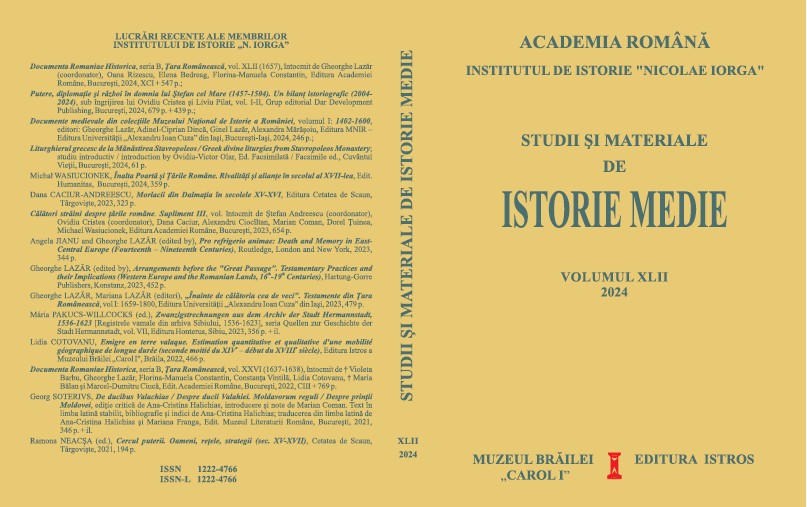Du tribut à l’impôt. Un héritage de l’époque mongole dans le système fiscal de la Moldavie médiévale
From Tribute to Taxation. A Legacy of the Mongol Period in the Tax System of Medieval Moldavia
Author(s): Andrei MireaSubject(s): History, Diplomatic history, Economic history, Middle Ages, 13th to 14th Centuries, 15th Century
Published by: Institutul de Istorie Nicolae Iorga
Keywords: Moldavia; Mongols; dan’; taxation; substitution; Eastern Europe;
Summary/Abstract: The article addresses the origins of the most important tax levied by the Moldavian voivodes during the Middle Ages. This particular tax, named dan’ in the fifteenth-century Slavonic diplomas written by the princely chancellery of Moldavia, has most probably its roots in the tribute that the inhabitants east of the Carpathians paid to the Mongol conquerors from the middle of the thirteenth century onwards. Two centuries later, besides its newer meaning of tax charged on one‘s subjects, the Slavonic term dan’ still retains its old meaning of tribute imposed by a foreign power, as attested both by a document from 1456 describing the acceptance of Moldavia‘s submission to the Ottoman Empire, and by a series of diplomas issued on behalf of the Podolian rulers in the late fourteenth and early fifteenth centuries. It is widely known that the term dan’ is generally utilized in late medieval Slavonic sources of Eastern Europe to denote the tribute paid to the Mongols. The author calls attention to a phenomenon labelled ―fiscal substitution‖ that has taken place since the fourteenth century almost everywhere in Eastern Europe, providing significant fiscal benefits to the local administrations, to the detriment of the Mongols. This ―fiscal substitution‖ consists of revenues taken over by the indigenous governance from its own subjects through the medium of the fiscal structures set up by the Mongols a century earlier. After the downfall of the Golden Horde, the already traditional collection of the Mongol tribute continued successfully in various regions as a regular tax paid by subjects in favour of the local lordships. As far as Moldavia is concerned, the long Mongol domination had two main consequences: on the one hand, it favoured the strengthening of its ties with the Slavic regions of Eastern Europe, all placed under the same political hegemony of the Golden Horde, and on the other hand, it allowed the formation of several political and fiscal structures appropriated subsequently by the Moldavian voivodes.
Journal: Studii şi Materiale de Istorie Medie (SMIM)
- Issue Year: XLII/2024
- Issue No: XLII
- Page Range: 173-192
- Page Count: 20
- Language: French
- Content File-PDF

